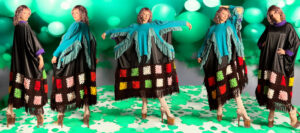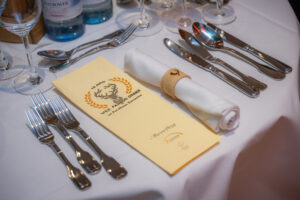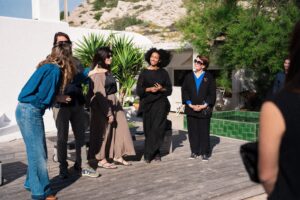Mary Ocher’s Your Guide to Revolution: 7 Insights from Her New Album
As far as I remember being in Berlin, one of my strongest concert experiences was seeing Mary Ocher on stage at the now-defunct club, The Antje Oeklosund, on Rigaerstrasse. Since 2007, our paths have crossed many times within Berlin’s vibrant music scene. Whether it was collaborating on costumes for her music videos, sharing a cup of coffee on Boxhagener Platz, or celebrating the New Year together, Mary Ocher has always been a captivating presence.
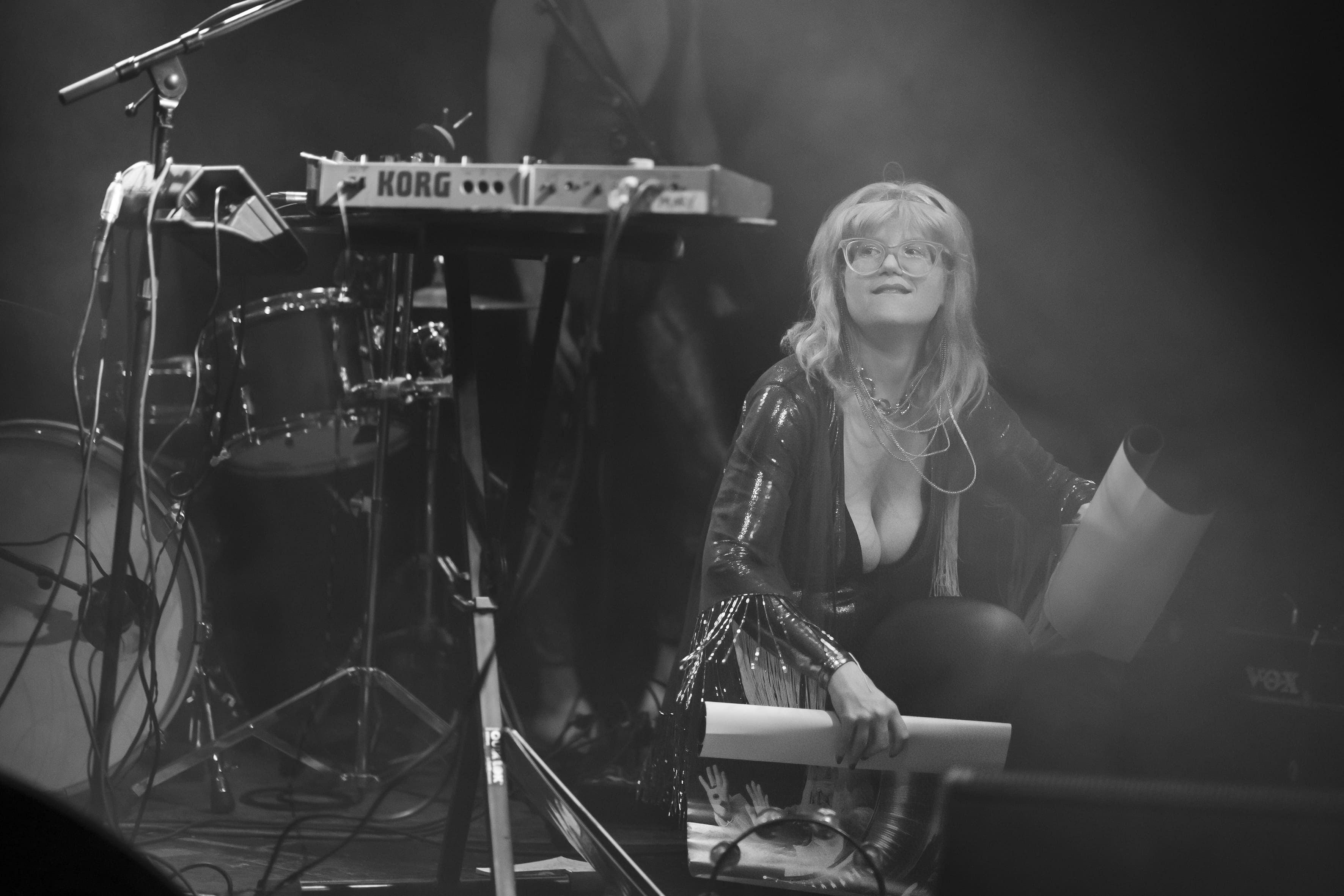
Photography by Petra Moser
Today, Liam James Kelly, interviewing for Tata Christiane, has the pleasure of speaking with Mary Ocher, a Berlin-based singer, songwriter, and multimedia artist renowned for her genre-defying music and thought-provoking performances. Born in Moscow and raised in Tel Aviv, Mary’s journey to becoming one of Berlin’s most compelling artistic voices is as eclectic and dynamic as her sound. Her work, which blends elements of avant-garde, folk, punk, and electronic music, challenges societal norms and delves into profound themes of identity, politics, and human rights.

Photography by Kai Heimberg
This month, in June 2024, Mary Ocher is releasing her highly anticipated new album, “Your Guide to Revolution.”
This album promises to be a powerful exploration of social and political themes, blending experimental sounds with her unique artistic vision. Join us as we explore the mind and music of Mary Ocher, uncovering the inspirations, struggles, and triumphs that shape her extraordinary career.
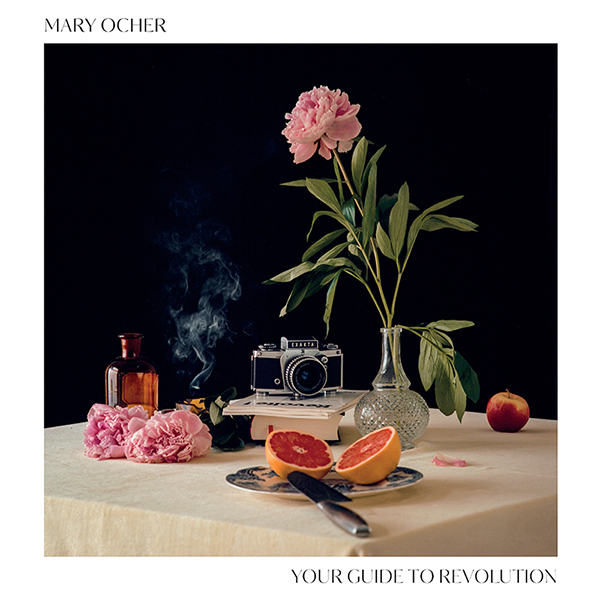
According to Wikipedia, you were nearly expelled from school growing up. What happened?
Mary Ocher: In the end I wasn’t expelled, I left on my own accord after long and turbulent years of coming to terms with the realization that the educational system in Israel and I didn’t quite see eye to eye. First I was forced to go to a religious school where I had some serious theological doubts, I was quite proud of reading the book “who wrote the bible” at 11, a book analyzing who the authors may have been from a historical and political viewpoint, which as you can imagine the school authorities deemed blasphemous.
Photography by Kai Heimberg
I also didn’t particularly enjoy the morning prayer of the boys “thank you Lord for not making me a woman”, and seriously opposed not being allowed to sing infront of people. My parents eventually agreed to move me to two other schools, the last of which was an art high school, but this being israel – our principal was a retired military officer, and they still taught us in history class that the Nakba never happened and the school administration was tremendously ashamed of it producing the highest amount of army refusers in the whole country – but that didn’t keep me in school, I had too many questions that teachers did not was to answer, it felt like wasting time, what I really wanted to do was be making music.
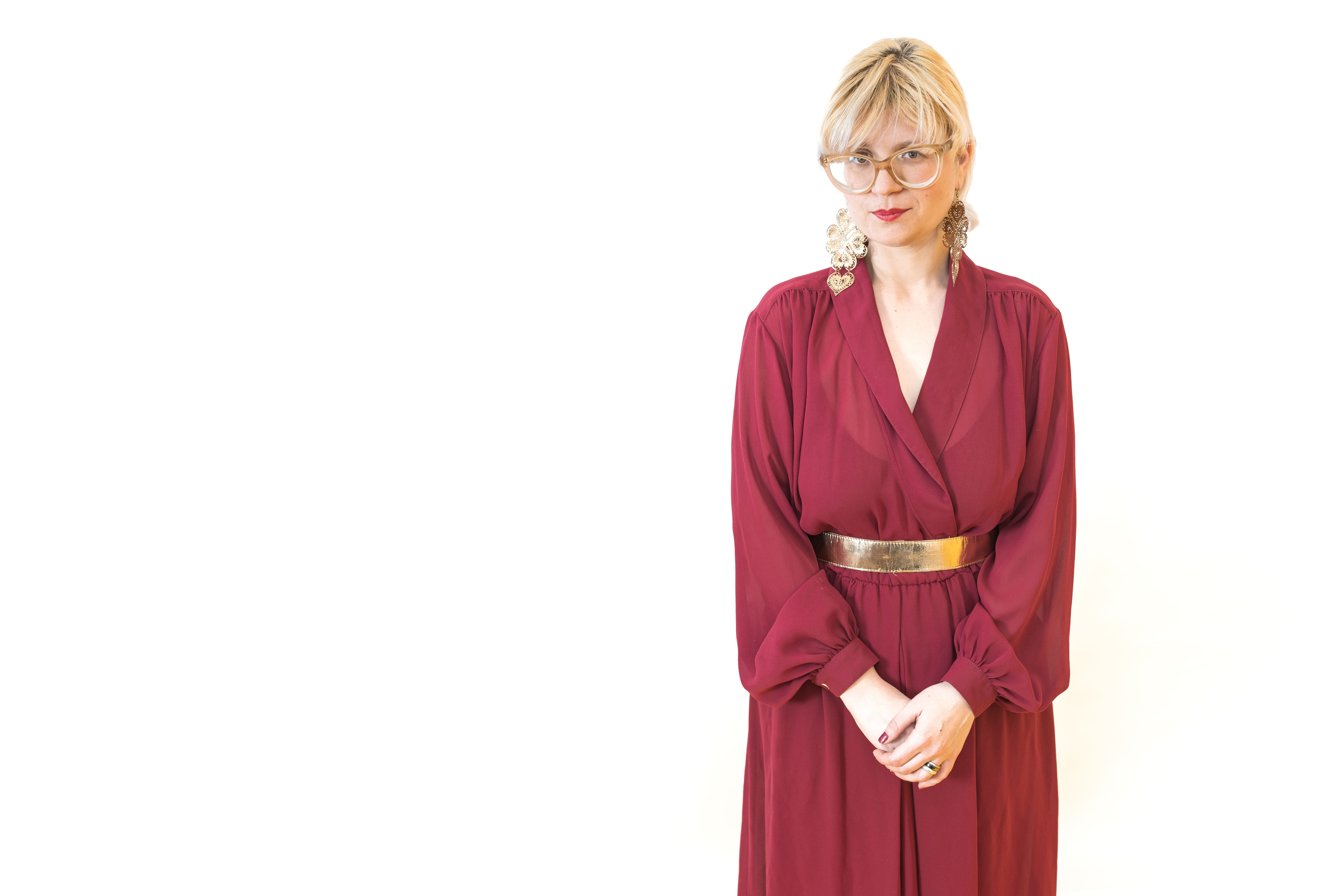
Photography by Kai Heimberg
What’s an album that you adore that would surprise people if they knew? I like New Boots and Panties by Ian Dury, for example.
Mary Ocher: Aw, that’s so great, I don’t know it and I’ll def check it out!
My first choice would be “The Rubaiyat” by Dorothy Ashby (or “The Rubaiyat of Dorothy Ashby” as it’s also known) – it’s an incredible record that is nearly out of print for some mysterious reason and it should be so much better known than it is! It is an incredible collection of psychedelic Harp and Koto compositions based on the poetry of 12th century Persian poet Omar Khayyam. Three tracks of which we made variations on in “Your Guide to Revolution”, released on June 11 2024.
MARY OCHER-screenshots from her Music Video “The Rubaiyat Medley”
Tata Christiane described Berlin to me when she arrived in 2007 as a place without streetlights. Obscure and free. These days, that’s less the case, and I’d argue that Tata isn’t the same person as she was in 2007, either. Do you think you or the city has changed more over the years?
Mary Ocher: Berlin still has much less illumination than most cities, you really notice that when you come back from other places, and also as a fulltime cyclist… But of course, it has changed so much and we have adapted too. if we’re still here we most likely figured out either how to live very cheaply or to earn more, or perhaps both. I’ve been thinking about this for a while and wrote “A Guide to Radical Living” as a complementary text to the new album with some practical suggestions for keeping life affordable in a big city.
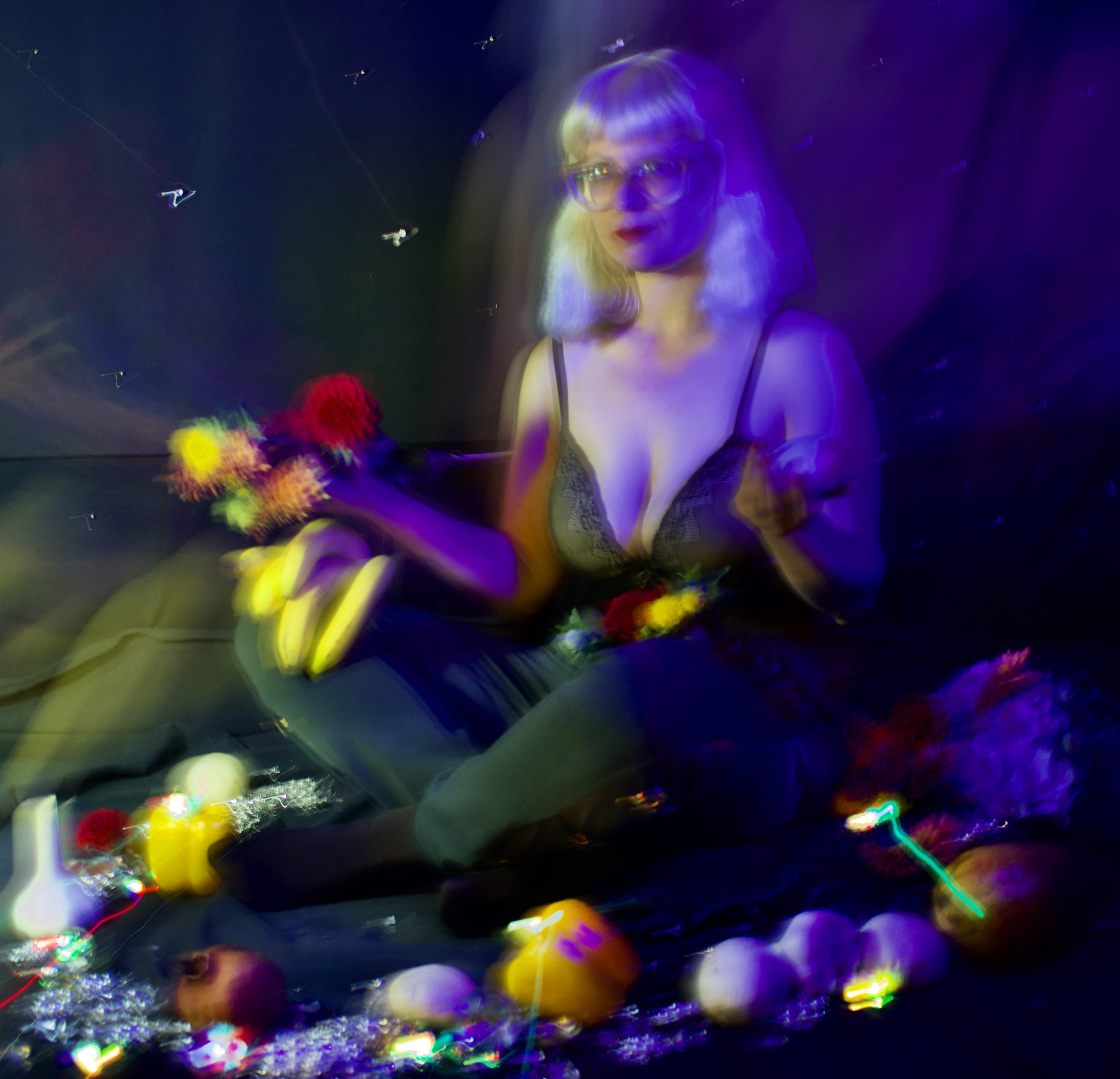
Photography by Antonella de Giorgio
You write about finally getting your own place in Berlin after much toil and evictions. Has it solved your sense of precarity?
Mary Ocher: I never had much of a sense of safety or stability, having been an immigrant from the age of 4, and living in a certain community house that lost its legal status very quickly (I moved out before the eviction). In some ways perhaps that saved me from despair, I was prepared to work very hard to make things happen. I knew that nothing would be given on a silver platter – which perhaps others who grew up in affluent families were not prepared for. In any case, I am very grateful for everything I have, and I try not to take anything for granted.
Most likely things will always require tremendous amounts of effort – that is one thing that I doubt will ever change.

Photography by Kai Heimberg
If you weren’t making music, what do you think you’d be doing?
Mary Ocher: I’d be dead. I couldn’t imagine doing anything else when I was a teenager, nor now. It’s my entire identity.
I know, it’s fatalistic, pathetic even, but that’s the truth. There’s absolutely nothing that comes even close.
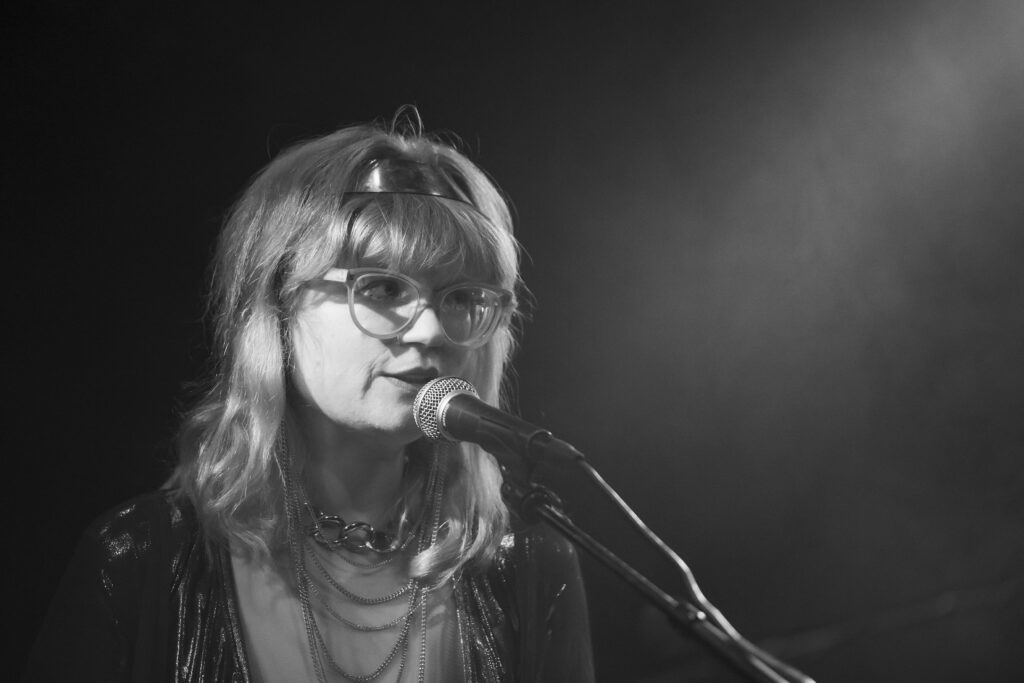
Photography by Petra Moser
Your videos and stage appearances are visually compelling. From the environment to the clothes you wear, how do you decide what to wear and the worlds you want to create visually?
Mary Ocher: Why thank you! I draw a lot, and occasionally make outfits myself or have actual costume designers make them for us.
I also often have a specific idea and go to thrift stores with a concrete item in mind – they either have it, or I keep looking until I find it elsewhere.
Make-up by Antonella de Giorgio – Head pieces by Dasa Hink – Outfits by Tata Christiane – Behind the scenes for a shooting for Mary Ocher
You seem at least somewhat eager to integrate technology, specifically a machine that would make music with the mind alone. But isn’t that what an artist does? Through their craft, they transmute ideas of the mind into music or clothing in the world. Do we lose anything if we skip this step?
Mary Ocher: Like many, I find that *unknown* factor very exciting, it spices things up. But also since I am actually quite the luddite myself (I use a flip phone and refuse to get a smartphone) these experiments remain in the fantasy realm at this point – since I cannot build brainwave reading machines myself, nor can afford to buy the advanced ones to get the results that would be at all close to what I envision.
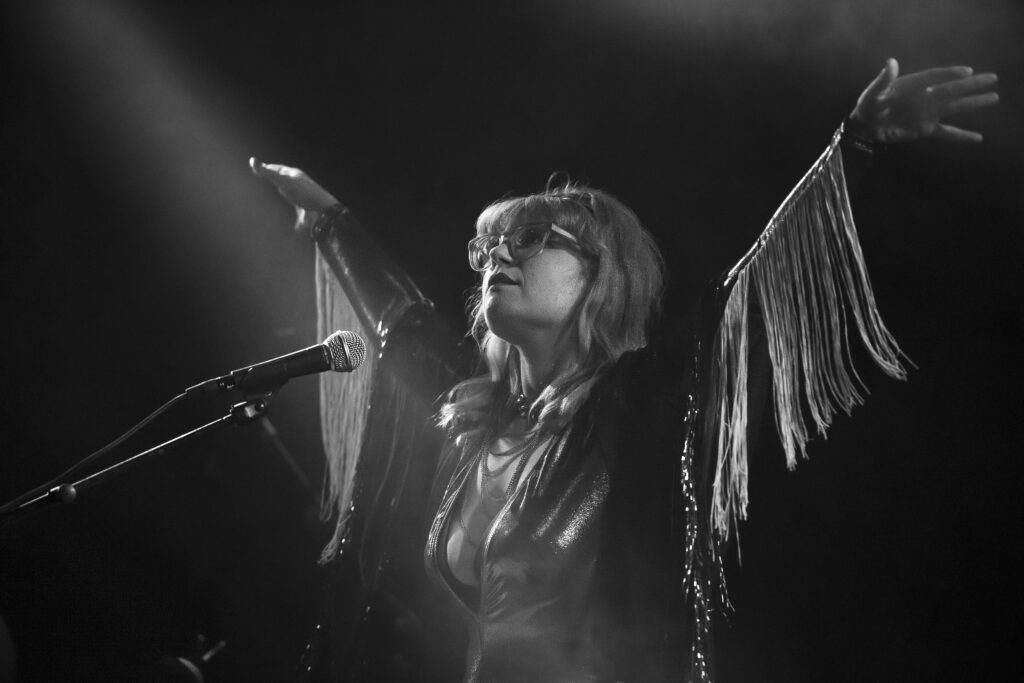
Photography by Petra Moser
Do you ever speak with Sasha Grey since your bit together on ARTE? If you did another episode of Durch die Nacht, who would you want to do it with?
Mary Ocher: Aw, it was absolutely dreadful It’s such a cringy episode! 😀
The producers of the show convinced me we’d have “so much in common!” – but that didn’t really come about, very often in this series they’d pick two people who already know each other, which seems much more organic… the one moment of sincerity in that episode that didn’t feel like talking to a facade was when she said she cannot act in her friends’ indie films because she’s a member of the Actors’ Guild and the budgets are not sufficient for their approval, that was a real, honest and very sad moment, and that part was of course cut out – perhaps upon the management’s request.
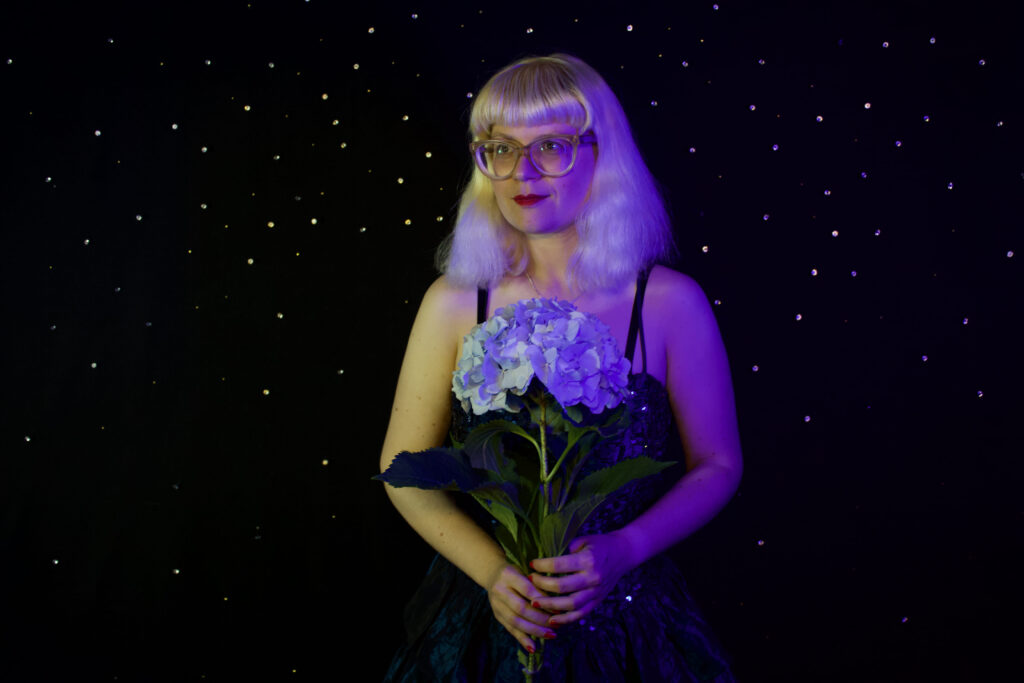
Photography by Antonella de Giorgio
There probably is an interesting person underneath the facade, but since we only hung out on camera, every word that was said was filtered through a public image – I didn’t have much of one yet (nor do I mince my words much now either) so I just came across as an arrogant little brat. We invited her to my next LA show via her management, but I think they never bothered to get back to us.
I don’t belong in mainstream culture and I don’t take any of this personally. We’re just different beasts from different universes.

Photography by Kai Heimberg
Among friends, you shared the latest album so that they could play it for their babies to report their reactions. Can you explain a bit more the reasoning behind this? Have you had any unusual reports from friends?
Mary Ocher: This was an idea that came about privately since one of the two drummers (Mats) played the album to his baby and reported back, so we thought this would be a fun thing to do, and I’ve never heard of anyone else sharing “baby record reviews”… of course perhaps there’s a whole universe of baby record reviews I’m just not aware of. I know there’s actual records made for babies 😀
You have a stunning and unforgettable voice. However, some of your albums also include quite a few songs without vocals. How do you make these kinds of decisions: To sing or not to sing?
Mary Ocher: The voice is just another instrument, isn’t it? when I was younger I had to fight producers and sound engineers (always older men) who’d try to persuade me: “you have such a pretty voice, you should keep all vocal recordings clean without any effects”, and that was incredibly offensive, if I wanted to have distorted, weird, alien vocals, I’d do it, there was a reason, they’d try to take my agency away.
Would anyone even ask a male musician why some of their work is instrumental? I write words, but I also compose everything.
MARY OCHER-screenshots from her Music Video “The Rubaiyat Medley”
This month, you’ll visit Chemnitz, Linz, Villach, and Regen before making it back to Berghain Kantine for the album release show for Your Guide to Revolution on June 14. What are some creature comforts that you need while on the road?
Mary Ocher: No, I don’t think so.
YOUR GUIDE TO REVOLUTION by Mary Ocher
RELEASE DATE: June 14 (Europe), July 19 (World) 2024
LABEL: Underground Institute
FORMATS: DL/LP
PRE-ORDER / PRE-SAVE for streaming
ACCOMPANYING TEXT: A Guide to Radical Living: A no nonsense guide to living comfortably with just enough: Why wealth needs poverty and how not to play along.
TRACKLIST:
01. Swedish Samoa (feat. Your Government) video / single
02. Digital Molam
03. Sympathize (feat. Your Government) 03:01 video / single
04. Earthmother (feat. Your Government)
05. Autotune (interlude)
06. I am The Occupation (feat. Serafina Steer) 02:30
07. When God Held My Hand (feat. Nina Hynes)
08. The Rubaiyat Medley (Part I) (feat. Your Government)
09. The Rubaiyat Medley (Part II) (feat. Your Government)
10. The Rubaiyat Medley (Part III) (feat. Your Government)
11. Earthmother (reprise)
12. Museum of Childhood Terror
13. For All We Know (The World May End Tomorrow)
Liam J.Kelly is a Berlin-based reporter covering finance, technology and culture.





























